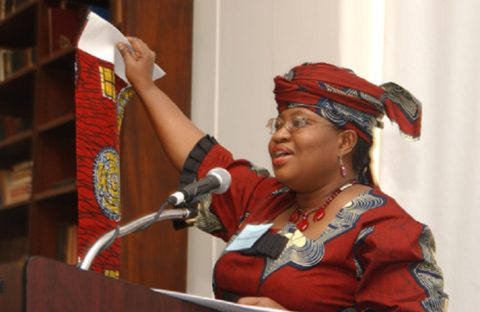Allegations of unremitted oil revenues, and leadership changes at the central bank, have attracted a great deal of the wrong kind of attention to Nigeria.
Though there was consternation in the markets following the suspension of Lamido Sanusi, governor of the country’s central bank, a sense of normality is gradually returning. At the Nigerian Stock Exchange, the All Share Index dropped by about 3 per cent in the days following Mr Sanusi’s suspension but has since recovered. The exchange rate is stabilising. Although foreign exchange reserves have dropped slightly to $39bn, this still provides a healthy level of import cover by International Monetary Fund measures.
The fundamentals remain strong. Inflation is at 8 per cent, down from 12 per cent at the start of 2012. The fiscal deficit is 1.9 per cent of gross domestic product and government debt is under control at 21 per cent of GDP. The IMF expects the economy to grow by 7.3 per cent in 2014, up from 6.2 per cent a year earlier.
The government has pledged to put aside a portion of oil revenues to help insulate the economy from external shocks. We will be vigilant against the risk of the economy overheating. I will ensure that fiscal policy remains tight, and that the acting central bank governor is committed to tight monetary policies.
Maintaining economic stability is the government’s most important aim. This will not be easy in an election year. We are, however, determined to keep the economy on the right path.
But the allegations concerning unaccounted for oil revenues remain. Initially Mr Sanusi put the figure at $49.8bn. At a later point, he accepted instead the assessment of the finance ministry and other agencies, who estimated that $10.8bn was not yet accounted for. Later, he alleged a new figure of $20bn.
Whatever the amount, Nigeria with its millions of poor people can ill-afford the loss of even $1. All funds that belong to the Treasury must be remitted to the Treasury.
That is why, given Nigerians’ decades-long mistrust of government-owned oil agencies, it is imperative that the allegations are examined by an independent committee. President Goodluck Jonathan has already announced that there will be such an inquiry. It must cut through the confusion and determine once and for all how much money is unaccounted for.
It is therefore essential that the inquiry should take a forensic approach, critically examining the accounts of the Nigerian National Petroleum Corporation and its subsidiaries. This work must be conducted urgently, and it must be followed by systemic reform of the oil sector to make it more transparent and accountable to the Nigerian people.
That is the aim of the Petroleum Industry Bill, which has been with parliament for several months. This draft law contains provisions to transform the oil and gas sector, including turning the NNPC into a commercial enterprise. This would open up the corporation and the oil industry, making them more transparent and accountable to Nigerians.
Yet passage of the bill has been delayed in the National Assembly as a result of intensive lobbying by interest groups – some Nigerian, some foreign – who benefit from the status quo either through favourable oil deals orfavourable treatment by the Nigerian tax system.
We call on these groups to allow the bill’s passage. And we urge our National Assembly to have the courage to pass this long overdue bill now.
In the meantime, we must not forget how far we have come in Nigeria. The economic reforms we fought hard to achieve are having positive effects. I have argued previously that, while we must pursue and punish those engaged in corrupt acts, building strong institutions is the most enduring way to tackle corruption in a systemic way.
This is unglamorous work requiring patient effort over many years. Yet this is precisely what is needed to move development forward.
In Nigeria, we are pursuing such reforms. The transformation of our power sector is based on this premise. Weprivatised our power generation and distribution assets, and liberalised the sector to allow private investors to play a role in building new infrastructure. We are also creating a strong electricity regulatory authority. This is one of the world’s most comprehensive and transparent privatisation exercises, and has attracted international investors such as General Electric, Siemens and AES.
Nigeria’s future lies not in oil and gas but in non-oil sectors such as agriculture, housing, creative arts and services, which account for more than 80 per cent of GDP. For sustainable growth and development, we must build enduring institutions in these sectors. We must fight corruption: and we must ensure that as our country develops, it also becomes more transparent.
The writer is Nigerian minister of finance
http://www.ft.com/intl/cms/s/







